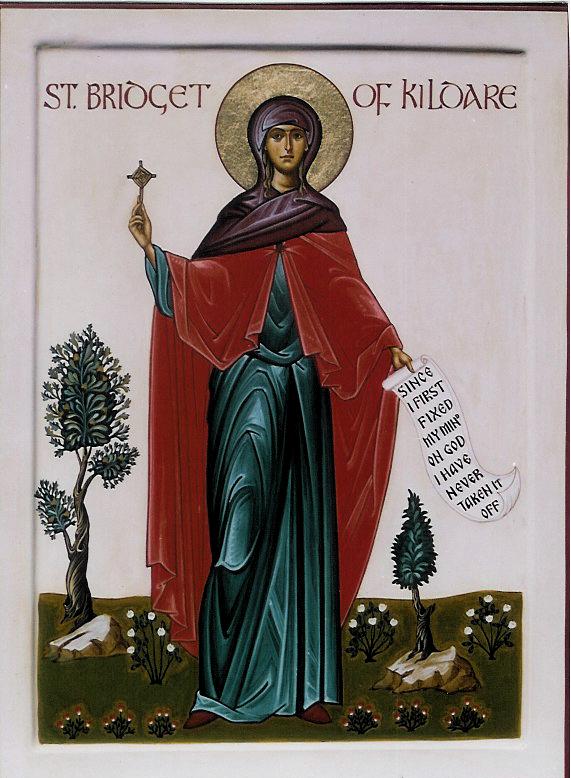C
CelticRebel
Guest
As I promised, here are some links. I would suggest a thorough reading of these. They show ways the Celtic Church differed from Roman Catholicism and Orthodoxy:
ARCWP - Resources - Articles
A quote from this article:
"In "Meehan, Praying with Celtic Holy Women," I wrote that The Irish Life of Brigit describes the episcopal ordination of St. Brigit of Kildare by Bishop Mel of Ardagh in fifth century Ireland.
The evidence in the Celtic Church indicates that women and men were equals in preaching the Gospel, presiding at Mass and at the other sacraments. Historian Peter Ellis wrote that in the sixth century, three Roman bishops at Tours wrote a letter to two Breton priests Lovocat and Cathern, expressing their outrage that women were allowed to preside at Eucharist. "You celebrate the divine sacrifice of the Mass with the assistance of women to whom you give the name conhospitae (monasteries where men and women lived together and raised their children in the service of Chris) ...While you distribute the eucharist, they take the chalice and administer the blood of Christ to the people... Renounce these abuses...!"
In mixed-gender monasteries, men and women worked as equals. However, the overall authority within a double monastery often resided with an abbess. St. Brigit selected Conleth to help her administer Kildare, and they governed "their church by a mutual, happy alliance."
The tradition of a Christian seeking a spiritual guide, mentor or "soul friend" was a prevalent Celtic custom. Women as well as men served as spiritual friends. This custom eventually influenced the entire Church and led to the institutionalizing of private confession. There are stories of spiritual seekers coming to Saint Ita and Saint Samthann to reveal their sins and to receive forgiveness and guidance."
Fall of the Druidesses
St. Brigid
Celtic Christianity
Christian Prayer and Worship Resources - Celtic influence today
Brigit of Kildare - Wikipedia, the free encyclopedia
ARCWP - Resources - Articles
A quote from this article:
"In "Meehan, Praying with Celtic Holy Women," I wrote that The Irish Life of Brigit describes the episcopal ordination of St. Brigit of Kildare by Bishop Mel of Ardagh in fifth century Ireland.
The evidence in the Celtic Church indicates that women and men were equals in preaching the Gospel, presiding at Mass and at the other sacraments. Historian Peter Ellis wrote that in the sixth century, three Roman bishops at Tours wrote a letter to two Breton priests Lovocat and Cathern, expressing their outrage that women were allowed to preside at Eucharist. "You celebrate the divine sacrifice of the Mass with the assistance of women to whom you give the name conhospitae (monasteries where men and women lived together and raised their children in the service of Chris) ...While you distribute the eucharist, they take the chalice and administer the blood of Christ to the people... Renounce these abuses...!"
In mixed-gender monasteries, men and women worked as equals. However, the overall authority within a double monastery often resided with an abbess. St. Brigit selected Conleth to help her administer Kildare, and they governed "their church by a mutual, happy alliance."
The tradition of a Christian seeking a spiritual guide, mentor or "soul friend" was a prevalent Celtic custom. Women as well as men served as spiritual friends. This custom eventually influenced the entire Church and led to the institutionalizing of private confession. There are stories of spiritual seekers coming to Saint Ita and Saint Samthann to reveal their sins and to receive forgiveness and guidance."
Fall of the Druidesses
St. Brigid
Celtic Christianity
Christian Prayer and Worship Resources - Celtic influence today
Brigit of Kildare - Wikipedia, the free encyclopedia

